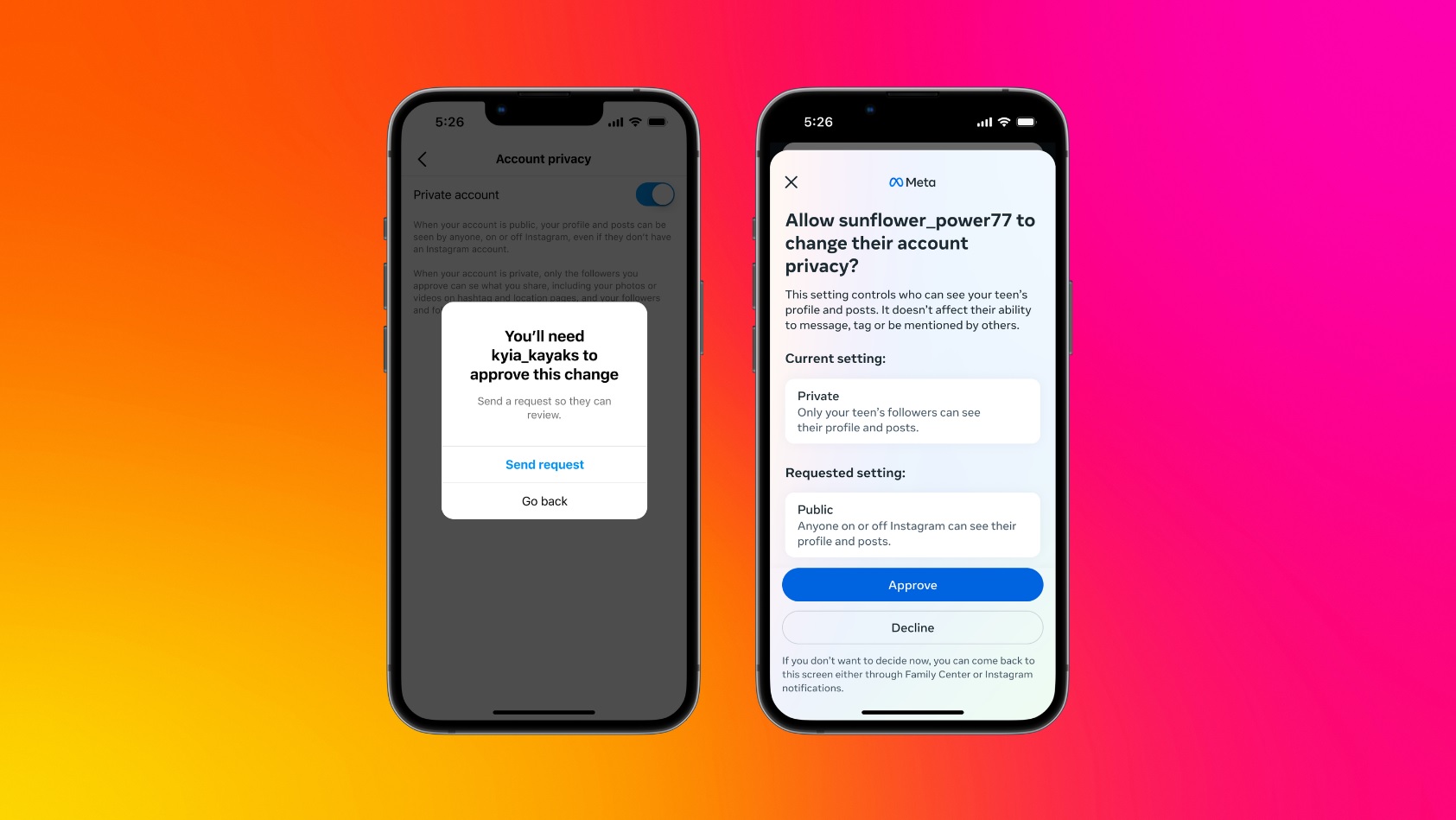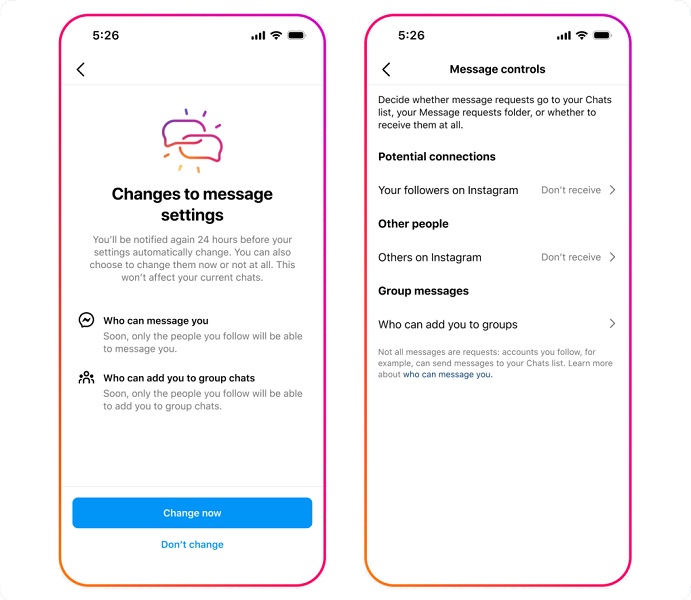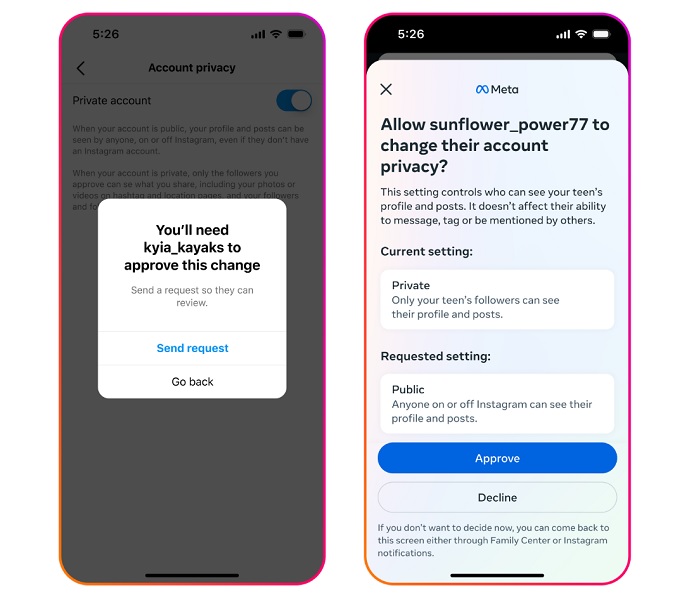
What you need to know
- Meta has detailed new ways parents can better protect their teenagers from harmful content on Instagram and Facebook.
- "Stricter messaging" settings are rolling in for those under 16 (or 18) to help prevent those they don't know from sending things to them privately.
- Teens must now send a request to their parents when looking to alter a default security or privacy setting.
On Thursday (Jan. 25), Meta detailed a few new ways parents can better safeguard their teens on Instagram and Facebook. Adam Mosseri, Head of Instagram, shared a quick video on the platform explaining that a new set of "stricter messaging" settings are arriving. These settings for children under 16 and under 18 in other regions will help parents ensure they don't receive messages from people they don't know.
In a subsequent Meta post, this new default setting allows a teen to be privately messaged or added to a group chat by users they follow or "are connected to."

A notification alerting users to the changes to their message settings will soon appear at the top of their feed. Even though these changes are set to occur automatically, Meta explains users will always have the option to go in and reconfigure them.
Additionally, users can decide whether message requests are delivered to their Chats list or Message requests folder, as well as an option to block them altogether.
Moreover, a change to Messenger is set to arrive for those under 16 (or under 18). Those within this age range will only receive messages from Facebook friends or those saved in their phone's contact list by default.

Meta states teens using a supervised account must await approval when changing their settings. This applies to changes made to default security and privacy settings. When toggling an option, teens will see a new pop-up that informs them they must gain approval from their parent alongside a "send request" and "go back" option.
A request must be sent if a supervised teen wants to change their account status from private to public, Sensitive Content Controls, or their new DM settings.
Instagram gained parental control through "Family Center" in 2022, which provided useful educational material and the ability to set when their child can access the app. Furthermore, this new approval request may help parents feel a little more comfortable as, previously, they were alerted to changes made by their child after the fact.
More is in the pipeline as Meta plans to launch an additional feature to help steer teens away from "unwanted and potentially inappropriate images." Such safety parameters pertain to teens' messages, preventing those they know from sending inappropriate content. Teenagers will also be discouraged from sending such content, as well.
The platform states more information will come "later this year" with details on its functionality in encrypted chats.







